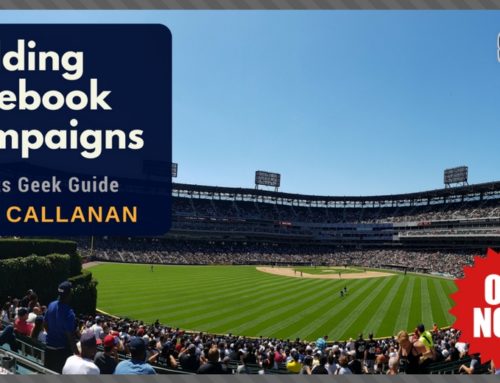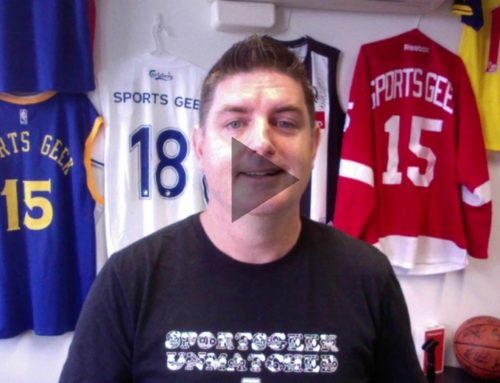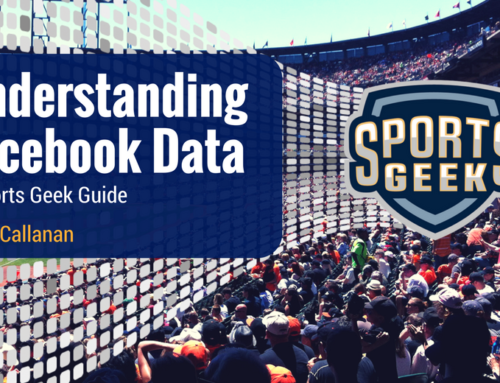 On Saturday's ABC Grandstand at 7:40 after a short discussion of the Pies win & the Twitter t-shirt (right) we looked at what #digisport professionals need to do to deliver for fans (and their boss).
On Saturday's ABC Grandstand at 7:40 after a short discussion of the Pies win & the Twitter t-shirt (right) we looked at what #digisport professionals need to do to deliver for fans (and their boss).
What are the Three Cs?
What does it take to work in #digisport & talk to thousands (or millions) of fans at once, we are looking for ability in 3 specific areas.
Content
Content is KING in digital & it is vital to keep feeding the digital beast. It includes some of the following:
- Producing “standard” web content – web articles, video interviews & podcasts
- Having a eye for content that fans would like – behind the scenes shots or insider access
- Being creative in developing new content ideas for the fans (that they can deliver on)
Curation
Curation is critical for sports, in most case there is TOO MUCH CONTENT to push it on your social networks.
- What content fits on what platforms?
- How much is too much? Listen to the podcast to hear Sean use the movie Hangover for Facebook frequency.
- How can you spin any news back to your team or brand?
Community
Lastly social media is about being social & therefore developing your fan base to borrow a sports cliche “one post at a time”
- Live & embrace the wins when the fans are at their most excitable
- Be ready to feel the frustration of fans when your team suffers a bad loss, you need a thick skin but remember it's not directed at you.
- Always be helping the fan to move along the fan journey towards reaching your team's goals.
Feedback from Twitter
We asked Twitter for what they look for in #digisport staff and got some great tweets.
@seancallanan @ABCGrandstand People skills, business acumen, willingness to learn are key #smsports #digisport #grandstand
— Tariq Ahmad (@tariq_ahmad) May 18, 2012
@seancallanan @ABCGrandstand Communication skills, creativity, boldness, insight & ability to engage. #grandstand #digisports #smsports — Shanna Bright (@shannabright) May 18, 2012
@seancallanan: A thick skin! #grandstand — Shane Harmon (@shane_harmon) May 18, 2012
@seancallanan #digisport peeps need to be strong communicators, fast-thinking, opportunistic, business savy + very personable #grandstand — Tom Nickson (@tom_nickson) May 18, 2012
@seancallanan Not to mention resilient, hard-working, tech-smart, creative and willing to learn (quickly) #grandstand #digisport — Tom Nickson (@tom_nickson) May 18, 2012
@seancallanan Put it this way… you can tell when too junior a staff member is at the controls#abcgrandstand #digisports #smsports
— Mandy Passmore (@MandyPassmore) May 18, 2012
Sports Geek Medals – Social Media Executioner edition
Bronze – Jessica Ivers – Canterbury Bulldogs
Jess did a great job driving the #gomanly hashtag all the way to the premiership last year for Manly Sea Eagles, now doing a stellar job with the Canterbury Bulldogs running a #digibattle with the Storm.
Follow @jivebong
Silver – Daniel Pinne – Melbourne Storm
Dan started before the NRL Finals last year & is doing a great job behind the scenes at the Storm, check out the BattleCam scheduled for Friday night against the Broncos.
Follow @cushion09
Gold – Matthew Gepp – West Coast Eagles
Matt is the man behind the powerhouse in the West working the fans into a frenzy with The Swoop & wearing multiple hats tweeting for the Eagles & the mascot Rick the Rock.
Follow @schismd
Until next week
Catch it live on Saturday mornings (at 7:40am) when Sean Callanan discuss sports digital with Francis Leach on ABC Grandstand.
Tune into ABC Grandstand Breakfast over the Friday through Monday on ABC Grandstand digital radio.
Follow @saintfrankly
Follow @abcgrandstand
Get the Sports Geek podcasts
Want to get these clips in podcast form? Subscribe here or Add to iTunes
Podcast transcription
FRANCIS: Francis Leach here on this Saturday morning. Sean Callanan is our digital sports guru, always talking about sport in the digital world each Saturday, and he’s with us again in his very specially designed Collingwood Twitter t-shirt. It’s a ripper Sean. I know that you’ve gone above and beyond to put all the Twitter handles and favorite Magpies on a t-shirt, sort of like John, George, Ringo Starr. How are you?
SEAN: I’m good thanks, Frank, and it’s always good coming in after a win on a Friday night.
FRANCIS: That’s hilarious that shirt. What do we got? We’ve got an @sp_10, Scott Pendlebury; @dt_13, Dale Thomas; @dids_04, Alan Didak, that’s one team. It goes on and on and on. Nice work.
SEAN: I’ll take a pic and twit after the show.
FRANCIS: What we’re talking about it’s interesting today because sports clubs are, some are and some aren’t, I guess, getting a handle, no pun intended, on using digital space to maximize the expanding experience and also I guess to promote their football clubs and sport organizations.
SEAN: Yeah, so, we started Sports Geek to pretty much promote that clubs needed a sports geek or someone to manage their sports side but also understand the tick and manage the community, and so more and more clubs are getting people into those roles, so to manage all the social platforms, help produce content for the website, produce video, liaise with the fans, all that kind of stuff.
FRANCIS: Who were the pacers? Who were the trendsetters that got there first, who got it early?
SEAN: There was a couple in the States who jumped on different platforms early, like we’ve talked about before. The NBA, jumped on board with Facebook, Twitter. They just got 5 million followers on their Twitter account, but it is a developing space, and I suppose when you’re looking for someone to be in that role there are sort of three things that we look at. They’re three Cs, and so the first thing we’ve got to produce is Content because all the social media platforms require content all the time.
FRANCIS: It’s a beast. It just needs to be fed.
SEAN: It does need to be fed, and the thing is with footy clubs and with football media there is so much content available, so it is a matter of, one, producing the content, but it’s also about finding the content out of nothing, so it might be as simple as ‘the boys are getting on the bus.’ That’s something that the fans never see. They never get that insider feel. Pull your phone out, take that shot, and you send it out via Instagram, as we’ve talked about or send it out to Facebook so the fans get that insider access.
FRANCIS: That seems innocuous enough, but what’s the value edge for the club? What’s the value for the fan in that experience? You work in this area. What’re you finding; what’re they telling you?
SEAN: Well from the fans point of view and the way that we sort of pitch it, we call them “social media executioners,” because it sounds cooler on your business card, is that you’re trying to have all your content to have a goal, and for most teams your goal is to get that fan from sitting on the couch in their pajamas watching the TV to coming to a game to becoming a member to being there rain, hail or shine to handing over your Visa card and your automatically renewing each year.
So from a social and digital point of view, you’re trying to fast track them on their journey, and the thing is that’s what social allows you to do because you get to talk to the fan every single day.FRANCIS: Does it feel like, I know, you and I both use this space a lot and do their people feel like it’s an authentic experience?
SEAN: Yes, yeah, I mean, they do. There are some that sort of see that the people are doing what they have to do as far as putting up posts and that kind of thing. But the idea is the fans, to coin a phrase, they do like the content they’re getting, and that’s the thing. You can track what you are putting out from a “likes” point of view, from traffic driving back to the website point of view, so the other part of their job is to be able to manage those stats and present case studies back to the business, to their sponsors, to the club to say, this is why we’re doing it, and this is why it’s a success.
FRANCIS: How far is it to curate the content well? You’re just not throwing stuff at the wall in the hope that it will appeal to somebody, but you’ve got some sort of plan or some sort of idea what works.
SEAN: Yes, so that’s the second “C,” Curation. It is, you’ve got all this content and you’ve got to figure out which content is going to fit for what platform, and at the right time, so you know something that will work, if it is just a slice of life shot that gets taken, that probably fits better for that Instagram crowd that is a visual medium crowd, who will go to Twitter because Twitter fans like to see pictures as much as to consume the article. So that fits for that crowd, whereas Facebook, our thing is you’re from a brand perspective and from a team perspective, you’re joining a personal platform. So most people in our experience are joining Facebook to connect with their family and friends and to stalk the people they went to high school with, right? And so as a brand or a team you’re encroaching in on that space, so you’ve got to be respectful of that, so the other thing from a Curation and how much do you post point of view, we use the movie the Hangover as an example: You wake up the next morning and you just don’t know what happened. And what do most people do, they’ll go and find out where they lost Mecca and where they checked in on Facebook and they want to check their feed, ah that’s right, we ended up there. And there’s that picture that we took at that bar, and that’s where they ended up, so they can go back to their feed and see that. Now they don’t want to go back in a half hungover state and see 27 updates from their team with a blow by blow description because it’s ruining their experience on Facebook because they can’t find out what their high school buddy is doing that they’re just stalking because there’re all these team announcements in there. So that’s where the Curation comes in because the fan might not “unlike” the team because they just can’t do it in their heart. They’re still a supporter, but what’s worse than that is if they hide your feed. They’ll never see your post ever again, so all the effort that you’re doing to engender more passion for the team, you’ve automatically lost them.
FRANCIS: Which clubs and sporting organizations do you think have established the best sense of community through their efforts in their space? I think there’s a lot of team’s doing it at varying levels.
SEAN: I think Twitter is a really great one from a community point of view because you can have that conversation. You can reply to fans. You can retweet their passion and their developments, so that’s where that Community comes in, which is the third “C” and getting that backwards and forwards going, so guys like West Coast they’re doing a lot of, you know, that random axe of the swoop. So we we’re talking gamification last week, they’ve got that gamification platform where they reward the fans from what they’re doing and they’re always saying, ‘Great work. Keep it up,’ and the fans just take that as encouragement, as a pat on the back.
So there’re a lot of teams that say ‘tell us what they highlights are.’ Collingwood last night was asking everyone what the highlights were and everyone was pumped up for a big win. You really want to maximize those opportunities because everyone’s up and about and everyone’s positive, conversely.FRANCIS: The good stuff.
SEAN: The bad stuff if you go through a 100 point loss or you haven’t had a win and you’re going to have that digital virtually going ‘sack the coach’ or ‘I’m angry.’ Sometimes you’ve just got to let that stuff breathe, and as long as it doesn’t go overboard as we saw a couple of weeks ago in the __ an incident and then we saw when the LA Lakers player missed a crucial shot and he was getting twitter death threats to him and his wife. As long as it doesn’t go over that boundary line, the fans are going to vent, and the way I sort of experienced it is if the media manager walked around the ground at the end of the game you’ve lost and writes down everything the fans were yelling out, it would be pretty bloody depressing, so one of the things that as a guy working or girl in that instance working in digital sports you’ve got to have a pretty tough skin. Because if someone slams the team and says, ‘Oh, you’re terrible,’ they’re not talking to you, they’re not talking to the person, they’re just having a go at your team. And everyone’s allowed to do that, that’s what sports about.
FRANCIS: In the world of #digisport, we’ve got a minute to go. You got a plan to finish for three people who are doing great work in this space here in Australia?
SEAN: Yes, so Jess Ivers who was formerly with Manly Sea Eagles and took them to the grand final from a digital perspective, now at Canterbury, does a great job with the Twitter banter backwards and forwards. Daniel Pinne, we talked about previously, at the Melbourne Storm, doing a great job reaching the Melbourne sports team and encouraging people to follow NRL. And as we spoke about before, Matt Gepp at West Coast Eagles doing a great job in interacting with the fans with the swoop and having the backwards and forwards with them, even tweets is the mascot, as well, so he has to have that multiple persona of beating out a tweet for different voices, so he does a really good job with that.
FRANCIS: Go on, Sean, Sports Geek.
SEAN: @Sportsgeekhq on Twitter, @SeanCallanan on Twitter. Thanks so very much. Didn’t get to the tweets for replying to what the qualities needed as well, so thanks a lot.




